Launch of the Bezos Centre for Sustainable Protein
Imperial College London is pleased to announce the launch of the Bezos Centre for Sustainable Protein with $30 million funding over 5 years.
The new Centre at Imperial will address the critical global issue of our current unsustainable and environmentally damaging food ecosystems. Led by Dr Rodrigo Ledesma-Amaro, from the Department of Bioengineering at Imperial, it will develop innovative and evidence-based solutions through the design, delivery and commercialisation of alternative food products which are economically and environmentally friendly, nutritious, affordable and tasty.
The funding for the Centre is provided by the Bezos Earth Fund, as part of their $1 billion commitment to food transformation. As well as the hub at Imperial, it will include other institutions and industry partners in order to develop and commercialise new ‘alternative protein’ products that will give consumers serious choice when replacing meat.
The launch of the Bezos Centre for Sustainable Protein at Imperial follows the announcement of a sister centre last month at North Carolina State University.
For more information on the Centre at Imperial please contact Dr Rodrigo Ledesma-Amaro
Opportunities at the Bezos Centre for Sustainable Protein
We will soon be advertising vacancies for managerial and administrative roles as well as for academics and researchers. We are seeking experienced staff to lead and deliver operational activities of the Bezos Centre for Sustainable Protein. If you are interested in joining a world-leading institution and passionate about enabling research with real-world impact towards the transformation and sustainability of our global food ecosystem, please register here to receive a notification when the positions open.
--
Imperial College London and the Bezos Earth Fund hosted a special event on the future of food as part of London Climate Action Week. Our distinguished speakers discussed innovative solutions to deliver healthy and nutritious food to 10 billion people without harming the planet.
Scroll down to watch the live stream or find out more about our speakers.
Sustainable Protein: Panel discussion
Q&A
- How can policymakers play a role in encouraging the transition to sustainable proteins?
- What measures do you think will be required to avoid the kind of backlash seen from the general public in the context of GM food to date?
- Can you share more thoughts on soilless and farm-free food system? What are the factors that can drive or hinder relevant transition?
- Part of the challenge of sustainable foods is testing and validating at scale - will the centre also be looking at this?
- What opportunities exist for students to get involved with the new centre?
- How will the centre ensure that the taste and nutritional value of the sustainable protein are on par with regular meat products?
- Heinz have done a pretty good job with beans. Will the centre look at the opportunity of beans which are already cheap?
- When will you be ready to work with food companies?
- Human diets have become narrower based on few foods. Does the centre have plans to focus on diversified proteins in addition to sustainable proteins?
- I have an idea for scaling cultivated meats and precision fermentation foods, who can I talk with at the Earth Fund for support?
- I'm interested in job opportunities at the centre
- What are the top 3 research challenges that existing alternative protein companies struggle with?
- How do you ensure that innovation in food avoids the fate of product monopolies like in pharma?
- How do we urgently level the playing field in protein production?
- How do you see the role of alternative protein that still require elements from animal agriculture, and how long do you expect this to be necessary?
- $30m over 5 years seems like very little resource to make the difference in this area. How can we turn the dial much more quickly?
- Are there any complementary strategies to R&D that you think are especially critical to mainstream alternative proteins?
- If energy is a key comparator of a rapid transition towards sustainability, what lessons can we learn to accelerate the transition?
- To reduce global average temperature by 1.5 degrees C, you would need to plant trees covering a land equivalent to the size of US.
- What innovation due to its possible commercial application, has most excited you in the last few months?
- What do you think about incorporating more protein dense nuts and beans into future food system design and products?
We will work closely with government officials and policymakers at local, regional, and national levels, and across the EU, to foster a supportive regulatory environment for sustainable proteins that accelerates sector growth while ensuring safety, quality, and sustainability. This clear route for advocacy allows us to identify and address gaps in the evidence-base that are critical for driving policy change. Organising and participating in policy events and authoring or contributing to white papers will be key tools. We will primarily focus on policy, safety and regulation in European territory (EU & UK). Being UK-based post-Brexit affords potential advantage, as policy frameworks around food regulation are more flexible -and processes quicker- than in the EU. UK approval increases the likelihood of approval across the EU (and beyond). In addition, via our spokes in Singapore and USA, we will engage with SFA and FDA and host cross-country policy events to exchange best practices. We will be aided by a policy engagement network at Imperial, formed by Imperial Policy Forum (acting as the first point of contact for government, parliament and industry partners seeking sustainable protein expertise), Centre for Environmental Policy, Transition to Zero Pollution Initiative, Grantham Institute, among others. We will engage in and inform debates around food security (a key focus of Imperial’s Centre for Translational Nutrition and Food Research). Recognising policy change requires bottom-up as well as top-down pressure. Members from the Bezos Centre for Sustainable Protein will engage with local schools and communities to foster support for sustainable proteins and build consumer demand.
Alternative proteins will be crucial to development of future food systems that are sustainable and support healthy lives. Widespread adoption of sustainable proteins requires improvement in quality, price, and consumer acceptance. To deliver products that compare favourably with meat on quality, we must improve their flavour, texture and nutritional profile. To achieve price parity, we must reduce raw material costs, develop cost-effective scale-up, valorise side streams, and apply automation.
One unique angle of the Centre is that it will have a strong component of Engineering Biology research. Engineering Biology applies engineering concepts to design, build and manufacture cells and products, and is a foundational technology of the 21st century. While early technologies from Engineering Biology have been applied to develop a limited number of sustainable protein products, the power of this approach to transform the sustainable protein field is unfulfilled. In addition, new Engineering Biology applications and facilities must be developed to fully address the current challenges around sustainable proteins.
The speed, ease, and ability to optimise multiple sustainable protein R&D strands using Engineering Biology, uniquely positions this approach to achieve transformative change in the required timescale. It is imperative to broad global interests that Engineering Biology technologies are applied to sustainable proteins to improve our food systems.
Our overarching vision is to apply cutting-edge Engineering Biology to accelerate the sustainable protein revolution and transform global food systems - making them more sustainable, healthy, productive and resilient by driving a step-change in consumption from conventional meat to sustainable proteins.
One of our workstreams is about understanding and working with consumers to ensure that progress is clearly communicated to the public and the public plays a role in the type of research and products that we will be investigating.
Key to the uptake and public acceptance of any new product but especially with respect to food is open and honest communication. We will engage with schools and communities in two-way communication to inform the wider community of the health and environmental benefits of sustainable proteins whilst taking input from the public to inform our research and outputs. Most importantly we will aim to deliver products that are tastier, healthier, and cost effective.
It is important to clarify that the sustainable protein sector is not in competition with traditionally farmed products necessarily. On the contrary sustainable proteins provide the consumer with greater options. From an environmental perspective it is well documented that we must act now to be able to provide real world solutions to our currently unsustainable food ecosystem as our population continues to grow.
Yes, the scalability of the product is key to successful translation and commercialisation and is a core component of the Centre’s Translation Pillar.
Education is one of the centre's five pillars. Under this, we will develop new training programmes with a focus on sustainable proteins. Additionally, the Centre will engage with the Imperial student networks Alternative Proteins, Synbic, and the Food Student Network, ensuring student representation and engagement with the Centre. Finally, we will run public engagement events that are open to all.
This will be done as part of our work streams on food technology and nutritional analysis.
Yes, we are already in discussions with collaborators.
We already work with companies and are always open to new discussions and collaborations.
In addition to working on the sustainability aspects, we will also be investigating the nutritional value of these products, and as part of that, product diversification can play a role.
You can reach out to the Earth Fund by their usual communication routes. You can also let us know if there is any way the Bezos Centre can support in realising your idea.
We will soon be advertising positions so please sign up to our mailing list to be informed of future opportunities.
Scalability, quality and price
One of the aims of the Centre is to ensure efficient translation and commercialisation of products. The Centre will deliver bespoke training programmes and support from the onset of research to aid researchers on their journey to commercialisation to increase the chances of products to market alongside company growth and longevity. We envision a mixture of small and large companies providing a range of products ranging from bespoke to wide adoption.
Our aim is that products delivered through the Centre will be of benefit to all on a global scale. We will collaborate with international partners including from LMIC and include equality with respect to global impact in our research and Centre initiatives.
I believe that precision fermentation can help us move away from those elements.
We are extremely grateful to the Bezos Earth Fund for injecting funding into sustainable proteins, which is key to addressing our global and currently unsustainable food ecosystem. The funding will drive a concerted and unified effort from academia, industry, and key stakeholders to address this issue and deliver impact with a long-term vision towards growth and sustainability within the sustainable protein sector for global benefit.
R&D is only one component but we need to work at different fronts, including the public/consumers, regulators and policymakers, safety agencies, medical doctors, nutritionists, chefs, etc.
Informing and educating the public for wide acceptance and adoption alongside incentives and government support.
We agree that this is a huge task. However, by reducing the amount of land currently utilised (and the increase in land required) to feed our growing population by utilising alternative methods for protein production we believe that this is a step in the right direction.
The first approval for a cultivated meat product in the UK (and European countries) by Meatly.
An excellent idea which we are looking into.
Speakers
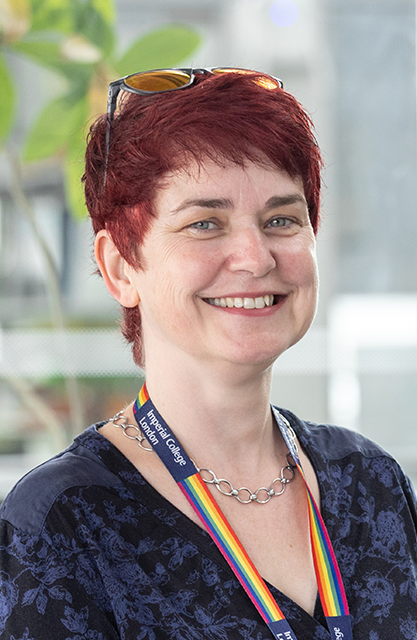 Professor Mary Ryan, Vice-Provost (Research and Enterprise) and Armourers and Brasiers' Chair for Materials Science, Imperial College London
Professor Mary Ryan, Vice-Provost (Research and Enterprise) and Armourers and Brasiers' Chair for Materials Science, Imperial College London
Mary Ryan, Vice Provost for Research and Enterprise at Imperial College London, is a distinguished leader in materials science. Recognised with a CBE and Fellowships in prestigious academies. She has published over 200 papers and graduated over 50 PhD students in the area of electrochemical materials science. Ryan's career exemplifies excellence in interdisciplinary research. Her strategic vision shapes Imperial's research and impact agenda, supporting its mission to address complex global challenges through convergence science approaches.
.png) Sir Andrew Steer, President and CEO, Bezos Earth Fund
Sir Andrew Steer, President and CEO, Bezos Earth Fund
Sir Andrew Steer is the President and CEO of the Bezos Earth Fund, a $10 billion fund to address the pressing issues of climate change and nature in this decisive decade.
Sir Andrew joined the Bezos Earth Fund from the World Resources Institute, where he served as President & CEO for over eight years. Prior to this, Andrew served as the World Bank’s Special Envoy for Climate Change from 2010 - 2012. From 2007 to 2010, he served as Director General at the UK Department of International Development. This followed 10 years in East Asia, where he was Head of the World Bank in Vietnam and Indonesia.
Sir Andrew is a Global Agenda Trustee for the World Economic Forum, a Board chair of the Global Energy Alliance for People and Planet (GEAPP), a member of the China Council for International Cooperation on Environment and Development (CCICED), and member of the leadership council of Concordia.
Andrew was educated at St Andrews University, the University of Pennsylvania, and Cambridge University. He has a PhD in international economics and finance.
He is married to Dr Liesbet Steer and is the father of Charlotte and Benjamin.
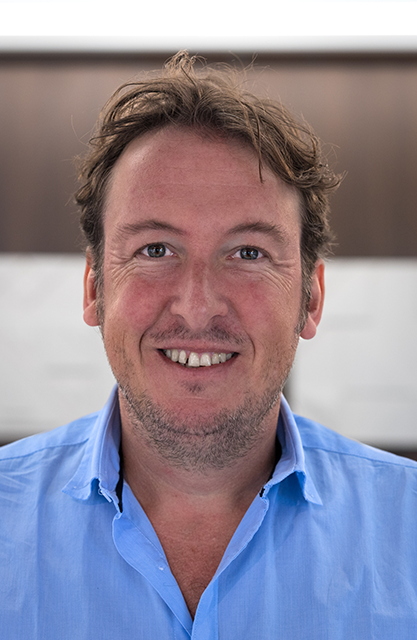 Dr Andy Jarvis, Director of Future of Food, Bezos Earth Fund
Dr Andy Jarvis, Director of Future of Food, Bezos Earth Fund
Andy Jarvis has worked for over 20 years in research for development to support the delivery of food security and environmental sustainability in the food system. His research has focused on data-driven policy analysis on a variety of topics from agrobiodiversity conservation to climate impacts and adaptation. Andy joined the Bezos Earth Fund from the Alliance of Bioversity International and CIAT, a CGIAR center, as the Associate Director General for Research Strategy and Innovation where he oversaw research that spans from crop breeding and genetics to landscape management, climate adaptation and mitigation through to dietary shifts and consumer behavior.
Andy holds a PhD in Geography from King’s College London, and is located in Cali, Colombia.
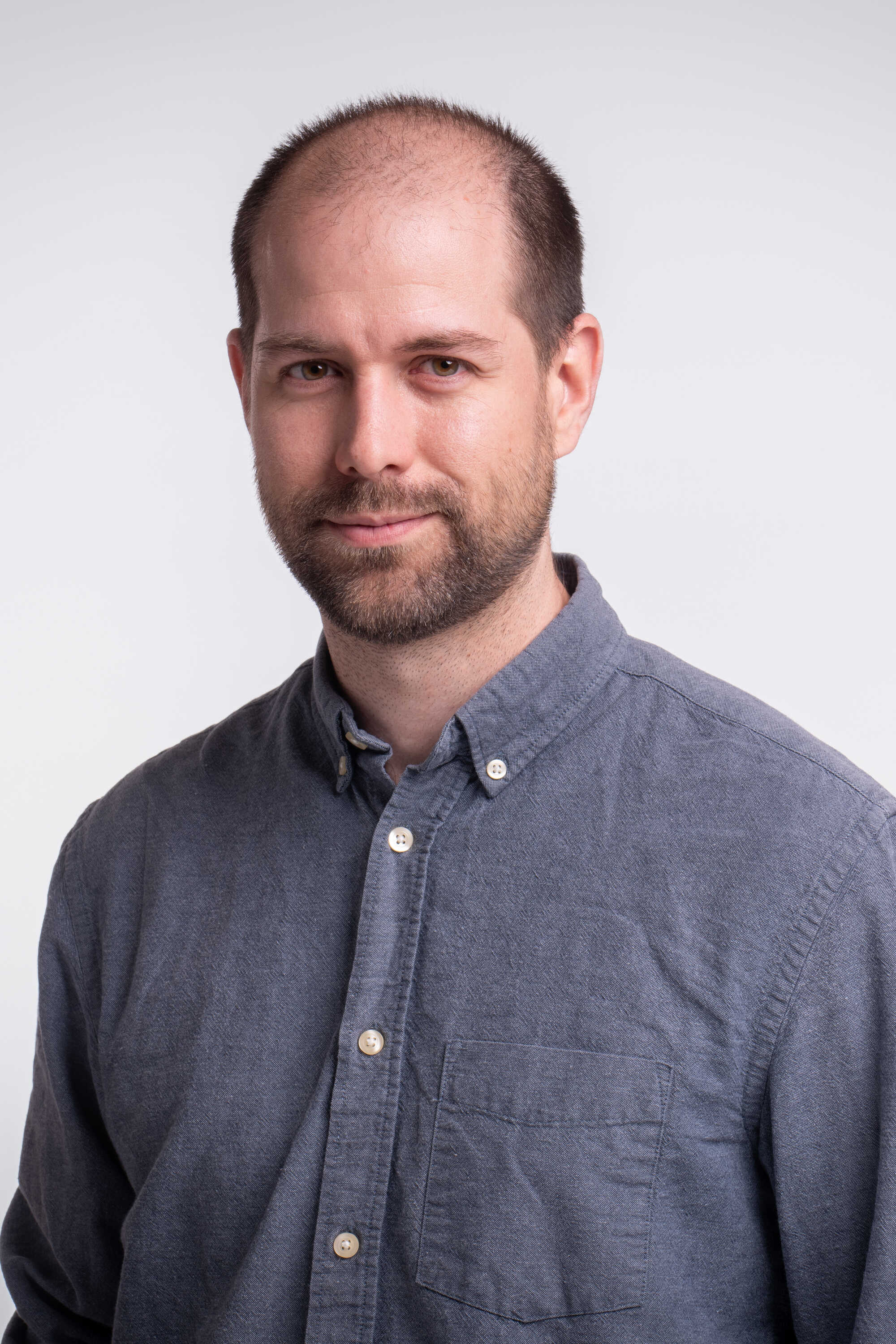 Dr Rodrigo Ledesma Amaro, Director, Bezos Centre for Sustainable Protein and Reader in Synthetic Biology, Imperial College London
Dr Rodrigo Ledesma Amaro, Director, Bezos Centre for Sustainable Protein and Reader in Synthetic Biology, Imperial College London
Rodrigo Ledesma-Amaro is a Reader at Imperial College London, where he leads a research group working on Engineering Biology and sustainability. His research focuses on the use of microorganisms to convert renewable feedstocks into valuable products (such as food ingredients). He has published over 150 articles, most on topics related to microbial bioproduction (precision, biomass and traditional fermentation).
Rodrigo obtained his PhD at the University of Salamanca (Spain). Before joining Imperial, he carried out his postdoctoral research at the National Research Institute for Agriculture, Food and the Environment (INRAE, France). He has been a visiting researcher at Chalmers University of Technology (Sweden) and AIST (Japan).
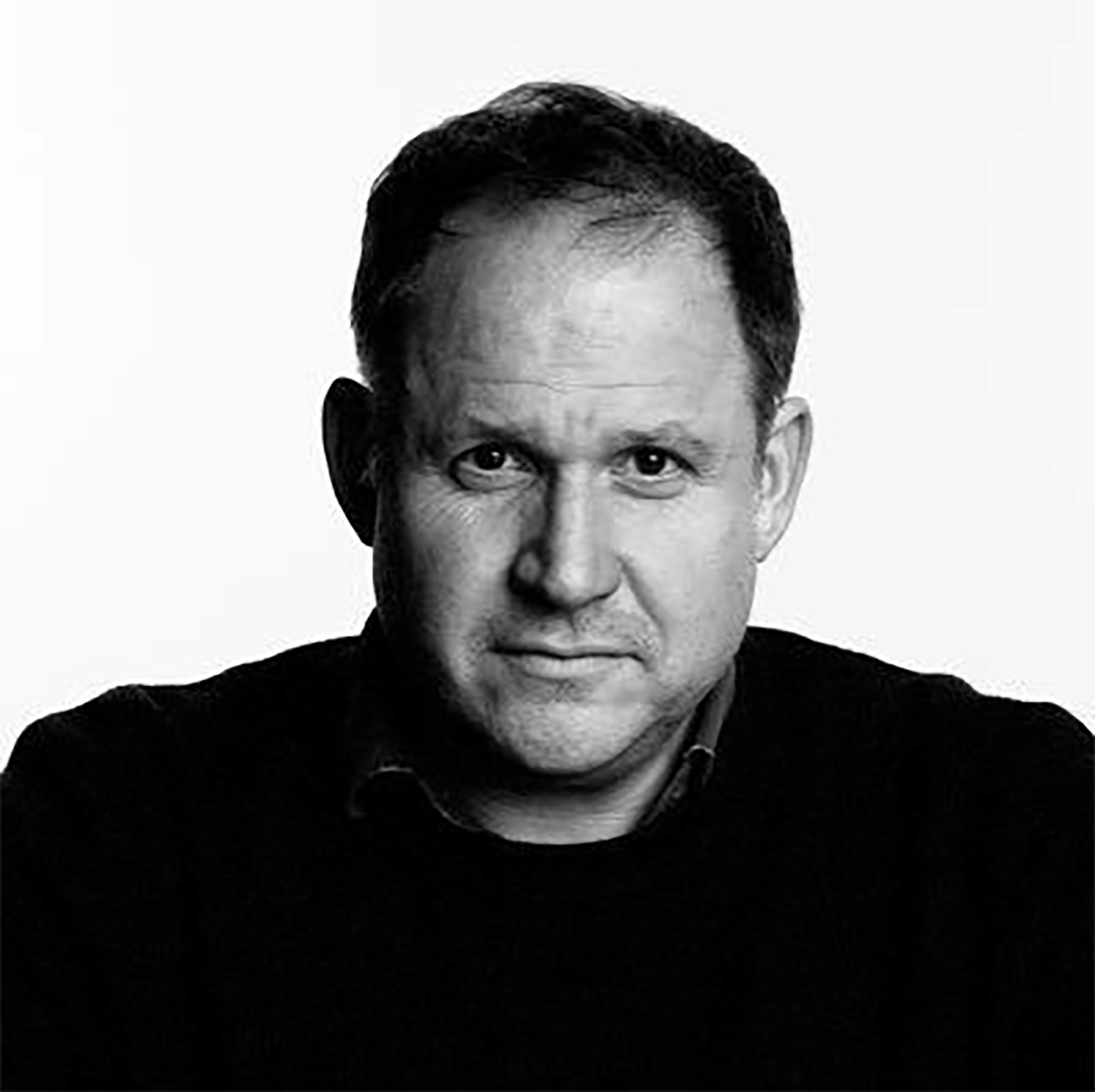 Henry Dimbleby, National Food Strategy Author and Co-Founder of Leon
Henry Dimbleby, National Food Strategy Author and Co-Founder of Leon
Henry Dimbleby is the author of Ravenous: How to get ourselves and our planet into shape. Published in March 2023, this analysis of the food system – how it is malfunctioning it, and what to do about it – builds on the work he did in the independent National Food Strategy, described by Prue Leith “the best government document that’s ever come out”.
Dimbleby is the co-founder and former CEO of Leon restaurants. He also co-founded the Sustainable Restaurant Association and the charity Chefs in Schools, which brings restaurant chefs into school kitchens. In 2013, he co-authored The School Food Plan, a blueprint for government setting out actions to transform what children eat in schools and how they learn about food. It resulted in the introduction of free school meals for all children up to the age of eight, and cooking lessons being made obligatory for all children up to 14.
From 2018 to 2023, Dimbleby was the lead non-executive board member of the Department for Environment, Food and Rural Affairs, serving under Michael Gove, Theresa Villiers, George Eustice, Ranil Jayawardene and Therese Coffey. He has also advised the Labour party on how to improve the sustainability and security of the food system.
Henry previously worked as a Strategy Consultant at Bain & Company, where he worked with businesses on strategy, performance improvement and organisational design. Before that he worked as a journalist at The Daily Telegraph and a chef at the Michelin-starred Four Seasons Inn on the Park.
Panellists
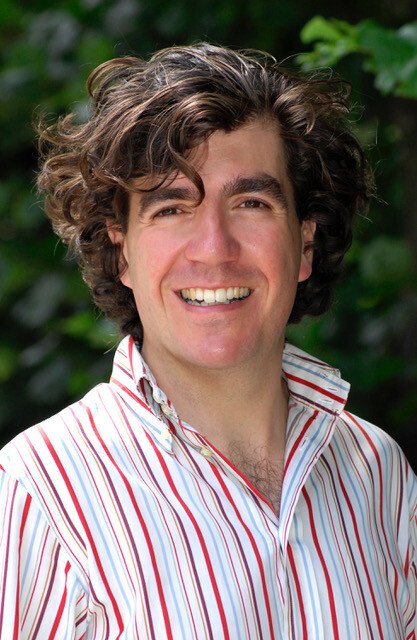 Alan Dangour, Director of Climate and Health, Wellcome Trust
Alan Dangour, Director of Climate and Health, Wellcome Trust
In January 2022, Alan joined the Wellcome Trust to lead its ambitious new strategy that aims to put health at the heart of global climate change action.
Alan was previously based at the London School of Hygiene & Tropical Medicine for twenty years, where he was a Professor of Food and Nutrition for Global Health and Director of the Centre on Climate Change and Planetary Health. Alan led an interdisciplinary team working on the interconnections between environmental change, food systems and health.
Familiar working in national and international fora, Alan was an Expert Advisor to the Environmental Audit Committee of the UK Parliament and a Senior Research Fellow at the UK Department for International Development.
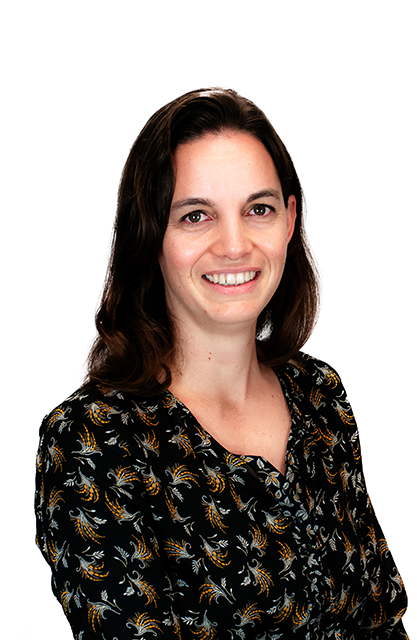 Stephanie Jochems, Managing Director, Marlow Ingredients, Quorn Foods
Stephanie Jochems, Managing Director, Marlow Ingredients, Quorn Foods
Stephanie is the Managing Director of Marlow Ingredients, and joined Marlow Foods in July 2020 as Group Strategy Director. She has 15 years’ experience in corporate strategy, strategy implementation, innovation and leading businesses in emerging markets. Before joining Marlow Foods, Stephanie worked with the Boston Consulting Group and later at Friesland Campina, based in Asia. She studied Financial Economics and International Law at the Erasmus University in Rotterdam and holds an MBA from INSEAD.
In 2023, Stephanie was given the remit to build a new business unit based on our fantastic fungi fermentation-based ingredients. The mission is to accelerate the global transition to delicious, healthy and sustainable foods by turning our unique ingredients into solutions for other companies and industries.
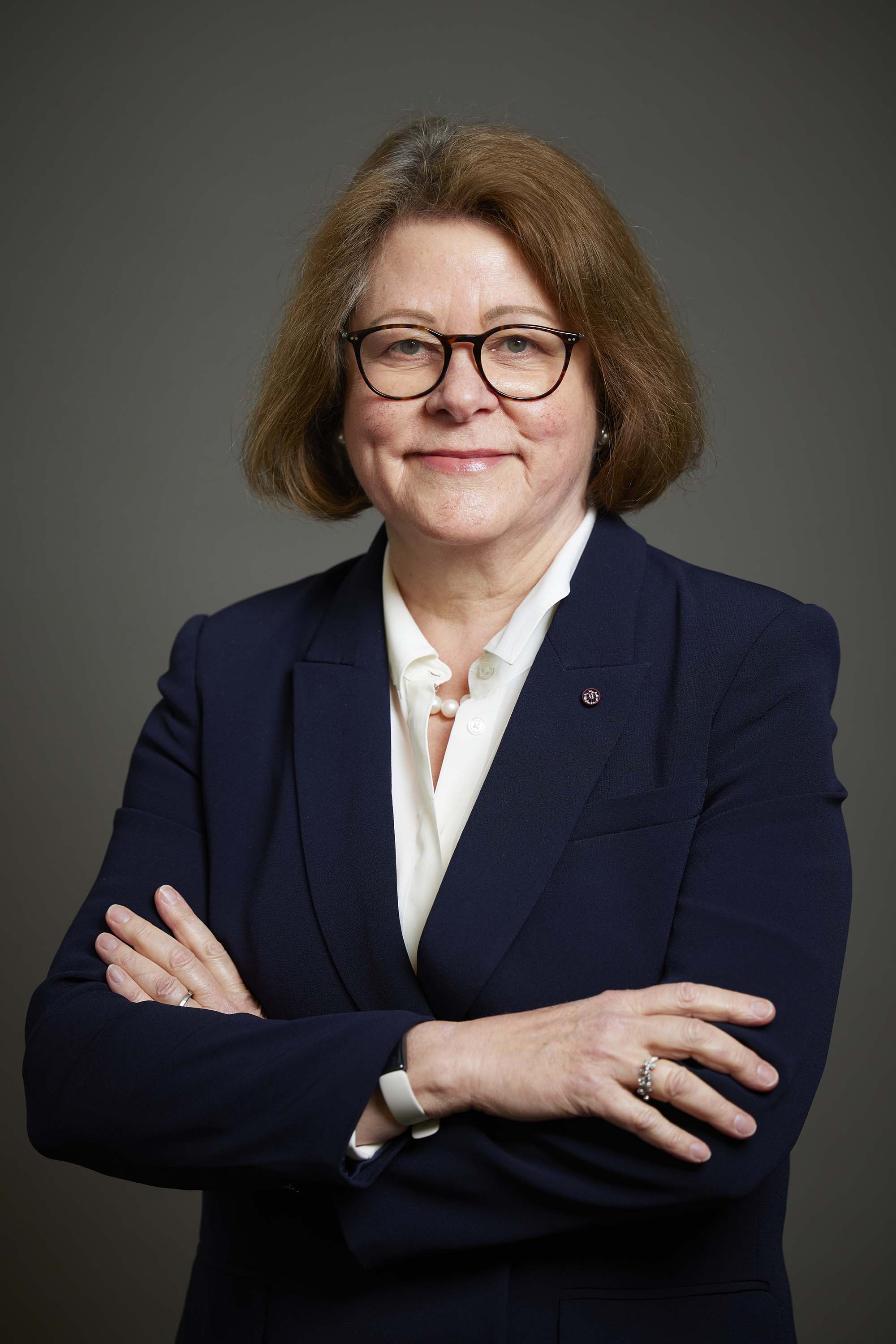 Dame Julia King, The Baroness Brown of Cambridge, Chair of the Adaptation Committee of the Climate Change Committee
Dame Julia King, The Baroness Brown of Cambridge, Chair of the Adaptation Committee of the Climate Change Committee
A career in academia and industry - Cambridge University and Rolls-Royce plc - led to ten years as Vice-Chancellor of Aston University in Birmingham, before joining the House of Lords as a Crossbench Peer in 2016. She currently chairs the House of Lords Science and Technology Select Committee.
Interests include climate change, innovation and technology. Current and recent appointments: Vice Chair of the UK Climate Change Committee 2008 – 2021; Chair CCC Adaptation Committee; Jet Zero Council climate advisor; Senior Advisor to Holtec UK; Chair BGF Cleantech Advisory Group; Chair: The Carbon Trust, Frontier IP; NED: Ørsted, Ceres Power. President of The Welding Institute 2024-2026. Past appointments include: Chair of the King Review on decarbonising transport; Chair of the Henry Royce Institute for Advanced Materials; NED Innovate UK; NED UK Green Investment Bank; UK Low Carbon Business Ambassador; NED Offshore Renewable Energy Catapult; Sector Champion for the Offshore Wind Sector Deal.
London Climate Action Week 2024
This event is part of London Climate Action Week 2024. #LCAW2024
Find out more about the other events Imperial is running during London Climate Action Week.
Programme
16.30 Welcome remarks
16.50 Keynote
17.00 Panel discussion with audience Q&A
17.45 - 19.00 Networking reception with showcase
